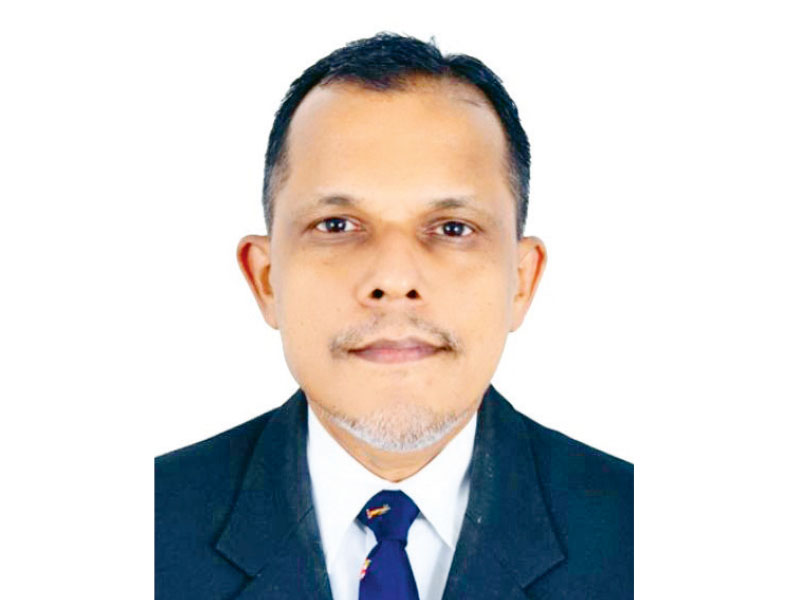Parinda Ranasinghe’s Credibility in Tatters After Withdrawing Lasantha Wickrematunge Murder Case

(Lanka-e-News -14.Feb.2025, 6.40 PM) The Sri Lankan Attorney General, Parinda Ranasinghe, has managed to do something truly remarkable—unite the entire nation in collective outrage. His decision to withdraw the case against the accused in the Lasantha Wickrematunge murder trial has left the public fuming, legal experts bewildered, and the credibility of his office in absolute shambles.
The people of Sri Lanka have seen this playbook before: a high-profile case involving powerful individuals is quietly dropped, and justice is conveniently “forgotten.” But this time, the sheer audacity of the move has turned Ranasinghe into a national villain overnight.
When Parinda Ranasinghe took over as Attorney General, there was hope—faint hope—that he would bring some long-overdue accountability to a legal system that has repeatedly bent over backward to protect the politically powerful.
Instead, he has proven to be a man in reverse gear, spinning the wheels of justice backward while pretending to move forward. His handling of the Wickrematunge case has exposed him as a weak, compromised official who has lost both his professional integrity and, quite frankly, his backbone.
It is now clear: the Attorney General’s Office, rather than being an institution of justice, has become a mere extension of Sri Lanka’s corrupt political machinery.
Let’s be clear—Lasantha Wickrematunge’s assassination in 2009 was not just another crime. It was the deliberate killing of a journalist who had repeatedly exposed high-level corruption and state abuses. His murder was a message to the entire press community: step out of line, and this is what happens.
For over a decade, there have been overwhelming suspicions about who ordered his killing, yet the legal system dragged its feet at every stage. The case, which should have been an open-and-shut murder investigation, was treated instead like a complicated puzzle—one that nobody in power seemed particularly interested in solving.
And now, thanks to Attorney General Parinda Ranasinghe’s latest stunt, any remaining hope for justice has been obliterated.
The Attorney General’s justification for dropping the case was laughably weak. He claimed there was not enough evidence to proceed. But everyone knows the real reason—the case was simply too dangerous for the ruling elite.
By choosing expediency over justice, Ranasinghe has now positioned himself as a snake oil salesman of the legal world—peddling the illusion of due process while ensuring the guilty walk free.
This isn’t just about one case. It’s about a pattern of legal manipulation that has shielded Sri Lanka’s most powerful figures for decades. Every time a politically sensitive case arises, the legal system somehow finds a reason not to prosecute.
If Ranasinghe thought this decision would slip under the radar, he seriously underestimated the Sri Lankan people.
Social media has erupted in anger, with thousands calling for his resignation. Legal experts have condemned the move as a disgrace to the justice system. Even former officials—some of whom have spent years in the same corrupt system—have expressed disbelief at the sheer shamelessness of the Attorney General’s decision.
Sri Lankans have long tolerated political corruption, but this time, it feels different. This time, the outrage is not just limited to activists and journalists—it has spread to the average citizen, who is tired of watching the country’s most powerful figures get away with murder.
With the new NPP government under President Anura Kumara Dissanayake, there is a slim window of opportunity to restore public faith in the justice system. But will the NPP act, or will this case fade into history like so many before it?
Dissanayake came to power on the promise of accountability and transparency. If he is serious about that mission, he must immediately order an independent review of the Attorney General’s decision. If necessary, legal reforms should be introduced to ensure that future Attorneys General cannot unilaterally bury high-profile cases.
Because if Parinda Ranasinghe gets away with this betrayal, it will send a chilling message—not just to journalists, but to every Sri Lankan who still believes in the idea of justice.
Parinda Ranasinghe had a choice: uphold the law and ensure justice, or bow to the powers that be.
He chose cowardice.
And in doing so, he has cemented his legacy—not as a defender of justice, but as the man who sold his credibility to protect the guilty.
---------------------------
by (2025-02-14 13:29:19)
Leave a Reply